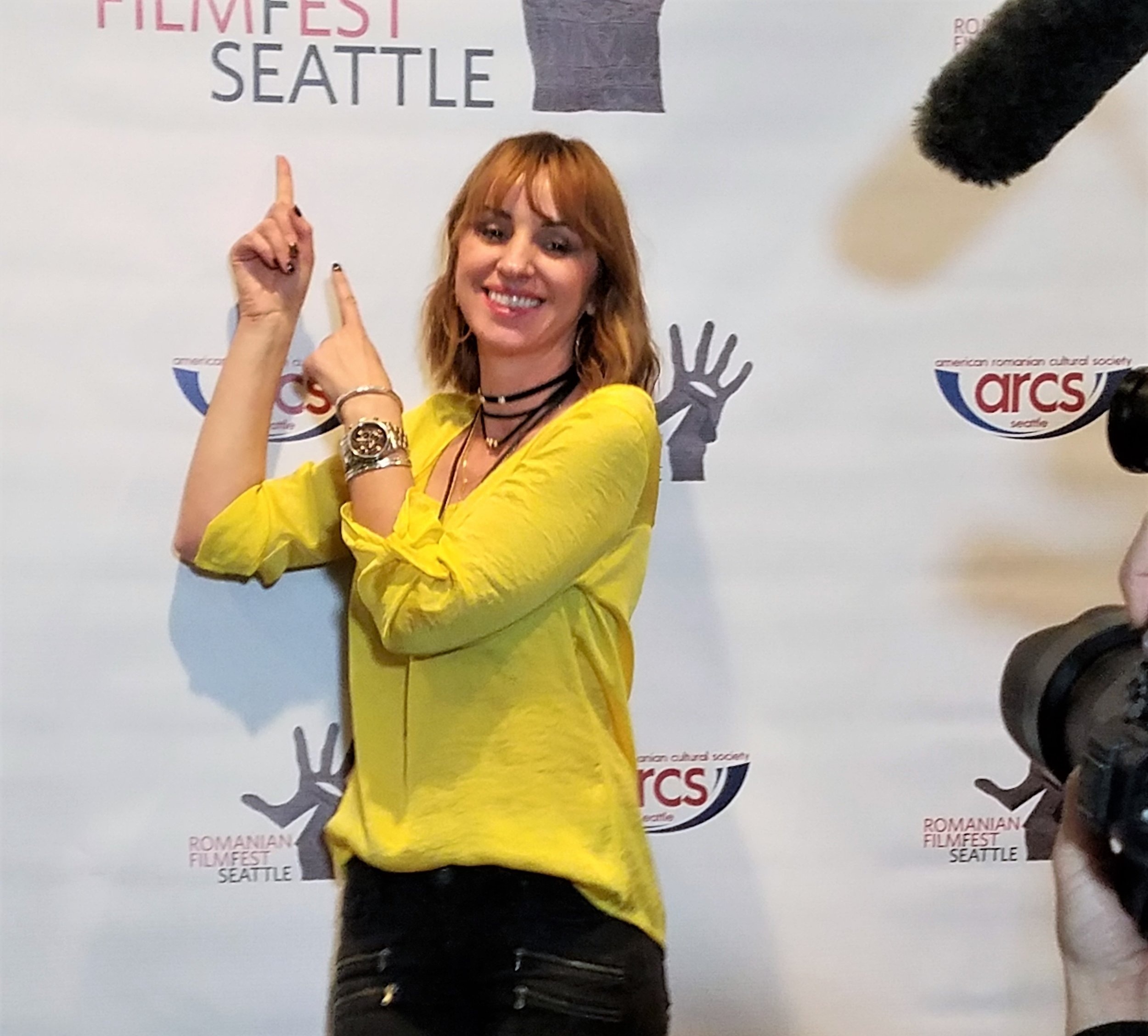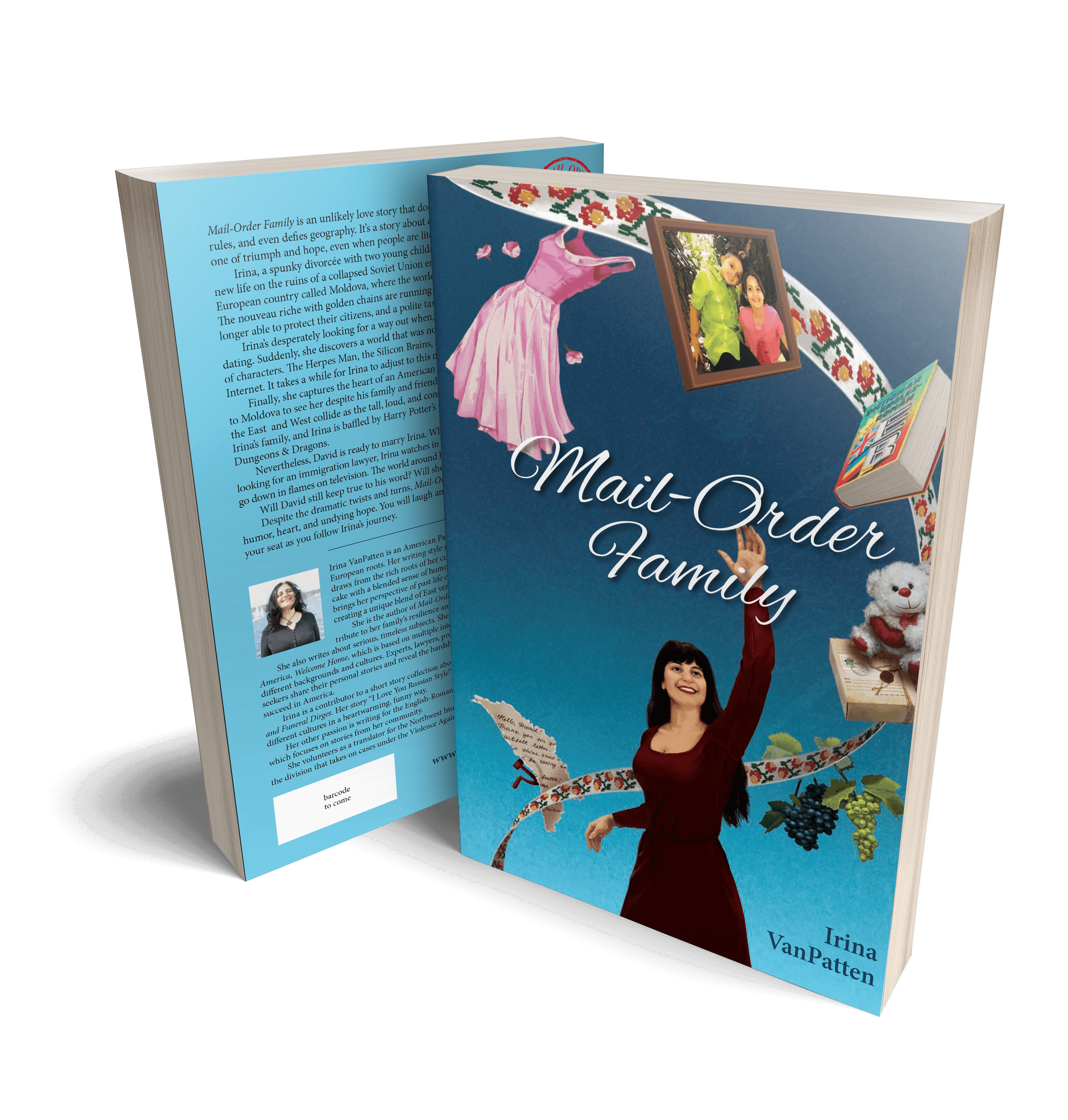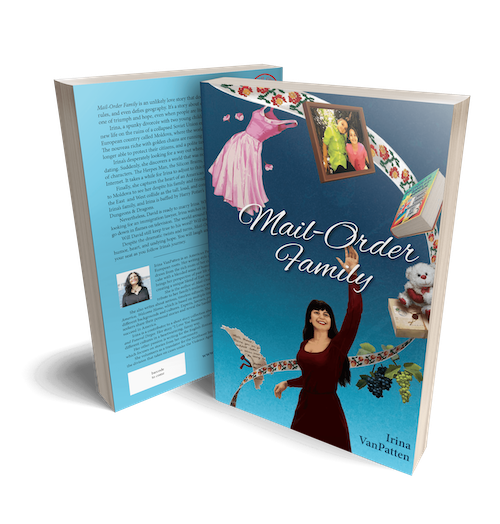The original interview in Romanian was published in Hora in America in December 2018. Below is the English Summary of the interview.
I introduce you Elena Beuca-Rogers: a Romanian actress and director, who made her own way through the dense Hollywood forest. We met at the Romanian Movie Festival, organized by the American Romanian Cultural Society (ARCS) in Seattle on November 2nd 2018. A graduate of the Law School in Bucharest and a real estate agent, one day, decided to take her fate by the horns, as a true matador, and change her life trajectory to something artistic. Why not? When you don’t know what to be afraid of, you’re so brave!
“How did you go from your previous profession to movies?” I asked her.
“When I graduated from Law School, I realized this profession was not my calling,” Elena said. “I can’t say I always dreamed of being an actress, but I’ve been looking for something artistic. I grew up during communism, we didn’t even have a television in the house. I was 13 when we bought our first TV. I don’t know how, but something lit up in my soul. I believe God gives talents to all of us. Some of us find them sooner, some later. Many things, in my personal life, in my family, in my career, have led me to my decision to go to Hollywood. I’ve reach the crossroads of my life, where I knew I had to try something different.
In 2005, I did some research on line, and I found out, that the best acting schools were in America, in particular: Julliard and the American Academy of Film. The AAF was more interesting to me and I applied there. The only bad part was, that I didn’t know anything about acting. I had to prepare two monologues for the audition: a comedy and a drama piece. I realized that I needed help, so I called the Bucharest Film Academy, and asked to speak with Mr. Zamfirescu, who was the dean of the University at that time. I don’t know why he accepted me, because when I told him I want to go to Los Angeles, he laughed: “You and all the Romanians want to go to Hollywood. Good luck!” Nevertheless, he helped me choose two monologues from “Summer in Smoke” and “Pygmalion”.
I came to Los Angeles for the audition in November 2005. I was the first student in the history of the Academy (or at least, that’s what I’ve heard), who was immediately accepted. The head of the academy told me that I had something special, what American applicants didn’t have: the passion and courage. Though, I think it was my naïveté. When you don’t know what rules you break, you are very brave, because you don’t know what to worry about.
In “Pygmalion”, there was a scene, where the heroine was so upset with her teacher, that she was supposed to throw her shoe at him. Well, I threw my Romanian flip-flop through the window across the yard. Probably, because no one else before me did that, they told me I was courageous and passionate. Now, knowing the rules of casting, I wouldn’t have done that. Most importantly, they accepted me, and the rest is history. On January 6, 2006 I moved to Los Angeles to start the school.
“How difficult is it for a Romanian artist to make a career in America?”
“I don’t know whether it’s harder for a Romanian emigrant than it is for an American. We have advantages and disadvantages. The first disadvantage is our accent. My Academy teachers had forbidden me from speaking Romanian at school or at home. They noticed, if I spoke Romanian, my accent was getting thicker, so I had to speak English at all times, even with my sister. It was very hard, but I got used to it.
“Is it difficult to be a woman-director in an industry dominated by men for a hundred years?”
“I think, it’s a little easier now, than it used to be. The industry is now a little more open, and there is room for everyone. My point of view is very different from your point of view, or a man, who can direct the same movie. I haven’t met people, who would say: “Oh, you’re a female director, you don’t have the same value.” I don’t have a lot of experience, though, and I had the liberty of choosing my own crew. In general, step by step, women in film industry are starting to find their voices. I hope, they will be even louder and more respected.”

Q&A after the premier
“What’s the story behind the movie D-Love, that you brought to the Romanian Film Festival in Seattle?”
“It’s a story based on a real-life event. A few years ago, my husband and I were coming from Romania. We had one of those long days, when our plane was delayed, our luggage and our car were lost. Everything that could go wrong, went wrong. When we finally arrived to Los Angeles after 35 hours instead of 15, we were exhausted. In the middle of this chaos, a vagabond, about 20-21 years old, asked us: “Excuse me, are you, by any chance, going somewhere East? I’m going to Utah.” It seemed strange to me, because you normally don’t see hitchhiking like this in Los Angeles, so I was fearful. My husband, on the other hand, immediately connected with him.
On our way, we discovered that his young man had so much goodness and light, and a kind of baby innocence, that we let him stay with us for five days. When he left, I felt as if I had sent my boy away to college, and our hearts were broken, because we bonded with him so much. What he taught us, was priceless. What we taught him, was priceless. We found each other at such a time, when everyone needed a divine intervention. Years later, when I was ready to make a movie, I said I was going to write a story called “D-Love”. Though, our distributor, told us that the name will change, but I can’t divulge it yet.”

“Will you ever make a movie about Romanian emigrants in the US or about emigration in general?”
“Probably, but I don’t know for sure, because every story I write or I get involved in, I had to feel it’s mine. There must be a message, that will connect with my soul. For example, my next movie, will be filmed in Romania for the most part and some parts will be filmed here. We, as Romanians, have so much to offer to America and the world!”
“Every director has his or her own signature. For example, Martin Scorsese has a distinctive style. What is your signature brand by which we can recognize your movies?”
“It’s a bit early to talk about it, because I haven’t made many films, but I can say they have heart. I usually make movies for the soul, not only for the eyes. This is how you’ll recognize Elena Beuca’s movies out of hundreds of others.”



